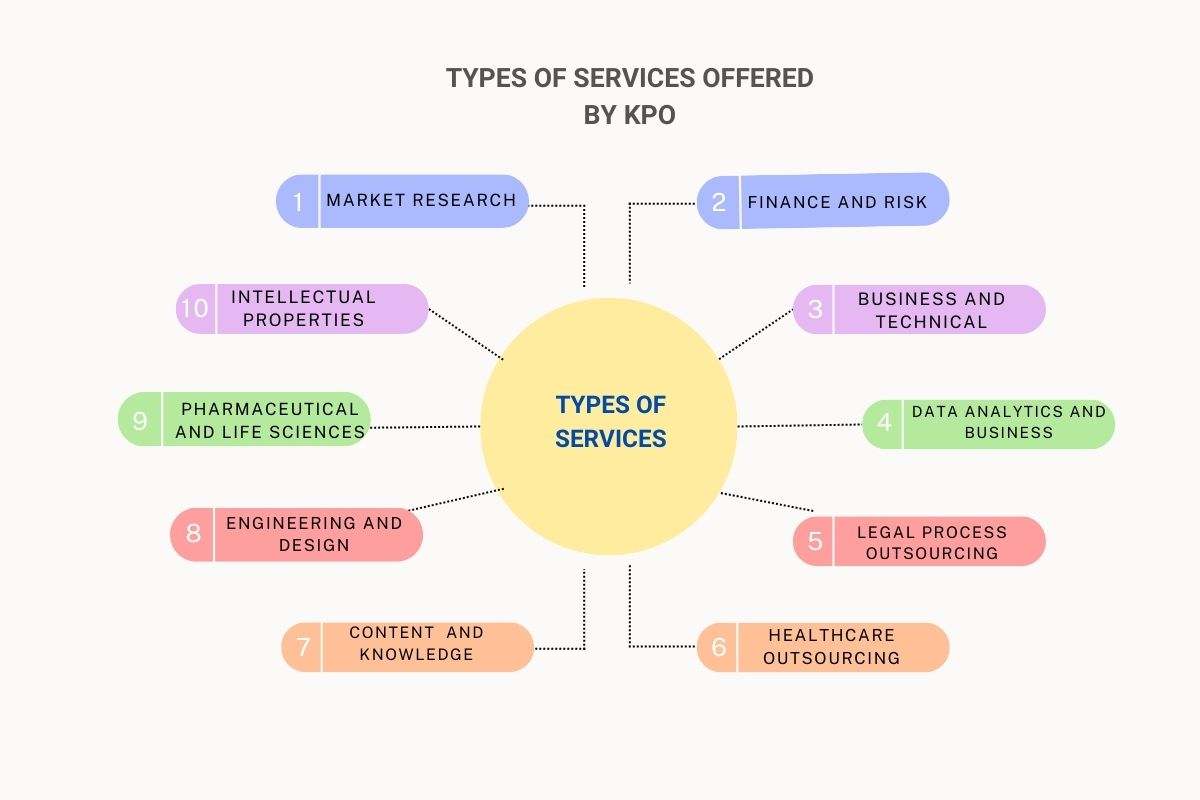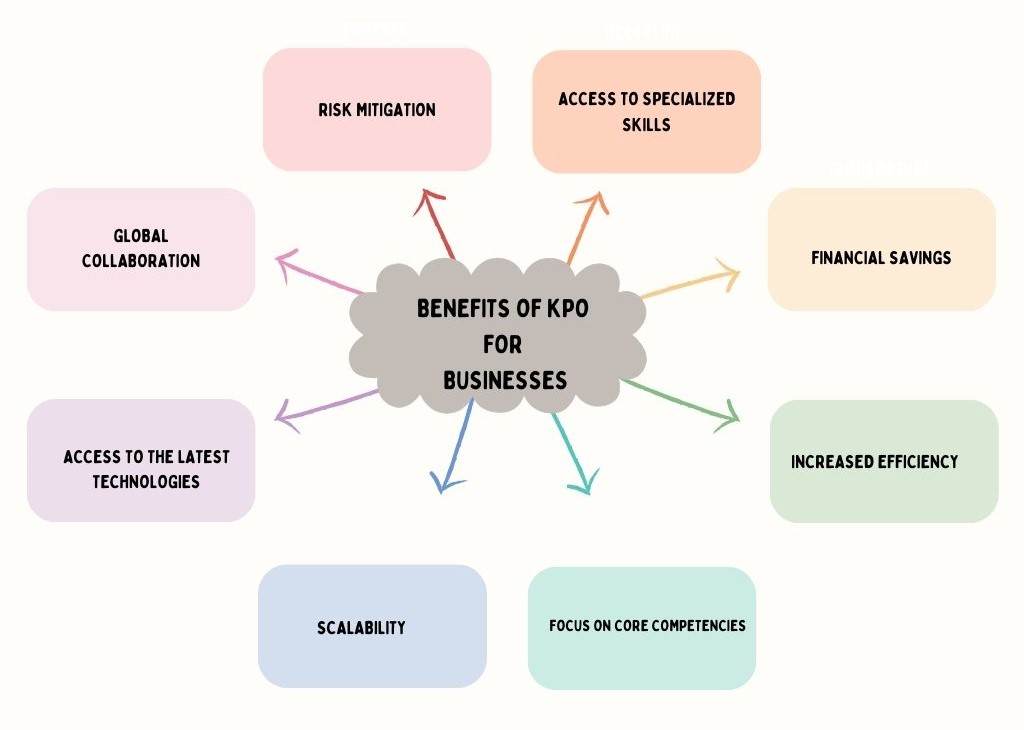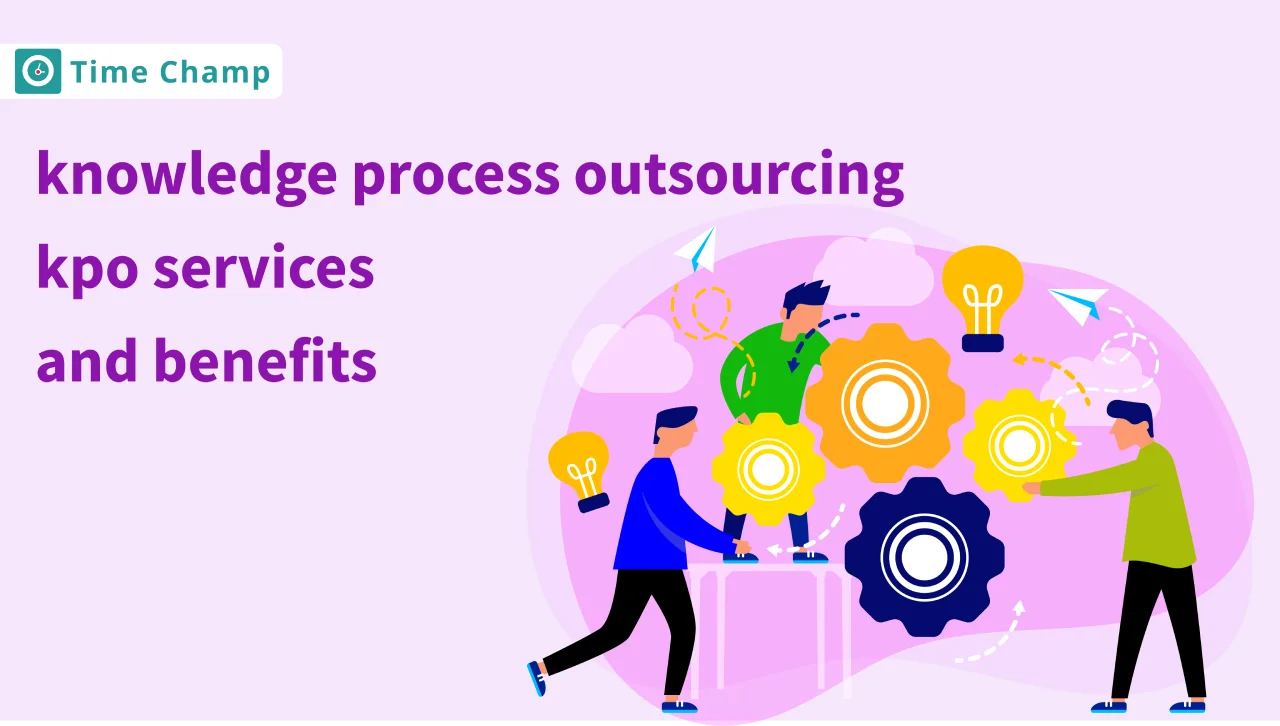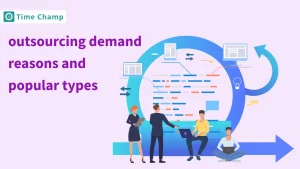Learn the services offered by Knowledge Process Outsourcing (KPO) and its benefits, along with how to choose the right provider for your business needs.
What is Knowledge Process Outsourcing (KPO)?
Knowledge Process Outsourcing (KPO) is a service that companies hire other companies for those tasks that need extensive knowledge and expertise. Unlike the usual outsourcing that might be only for simpler jobs such as answering phones, KPO is specifically for more complicated tasks like researching, analysing, and advising.
KPO is like asking an expert to answer with difficult problem. Companies tend to hire KPO services when they need to complete tasks that demand deeper comprehension or proficiency which they do not have internally. These tasks will be diverse from digging through complicated financial information to researching new market trends. KPO provides companies with an opportunity to get access to highly skilled services without recruiting full-time professionals, thus saving costs and time.
What is the Difference Between KPO and BPO?
KPO (Knowledge Process Outsourcing) and BPO (Business Process Outsourcing) are two different types of outsourcing that involve different types of jobs.
BPO is the most likely to be involved in routine and repetitive activities like data entry and customer service. However, KPO concentrates on jobs that are more specific and are related to research, analysis and consulting services. In short, BPO performs the routine work, and KPO is responsible for the more specialized tasks that require some specific skills and knowledge.
What Types of Services are Typically Offered by Knowledge Process Outsourcing (KPO)?
Following are the types of services offered by Knowledge Process Outsourcing (KPO).
Market Research and Analysis:
- Carrying out a detailed market study to find out the trends, opportunities and consumer behaviour.
- Analysing competitor’s strategies, pricing models and market positioning.
- Providing information on market dynamics and predicting future trends.
Financial Analysis and Risk Management:
- Performing financial modelling and analysis to make investment decisions.
- Evaluating risks related to investments, loans or financial dealings.
- Carrying out audits, compliance checks, and due diligence processes.
Business and Technical Research:
- Acquiring knowledge of new technologies, cutting-edge ideas, and smart approaches towards a particular business sector.
- Finding out whether the new business ideas or projects could work and are worth doing.
- Producing accurate documents to guide on how processes are done, conducting patent research to ensure that it is an original idea, and checking if ideas are somebody else’s.
Data Analytics and Business Intelligence:
- Data getting, cleaning, and analysis to extract valuable insights.
- Making predictive models and algorithms for sale, demand, or customer behaviour forecasting.
- Developing interactive dashboards and reports assists in the process of data-driven decision-making.
Legal Process Outsourcing (LPO):
- Performing legal research, analyzing legal cases, and making sure that the regulatory rules are adhered to.
- Making contracts, agreements, and legal documents.
- Facilitating litigation procedures including document examination and discovery.
Healthcare Services Outsourcing:
- Medical transcription services are the services that translate voice recordings into text format.
- The medical coding and billing services are the ones that make sure that the reimbursement is accurate and timely.
- Healthcare analytics to the improvement of resource allocation, patient care, and operational efficiency.
Content Development and Knowledge Management:
- Generating high-quality content for websites, blogs, marketing materials, and technical documentation.
- Managing knowledge repositories and arranging information in a way that it is easy to access and retrieve.
- Offering e-learning services, instructional design, and training content development.
Engineering and Design Services:
- The CAD/CAM design services are used for product development and manufacturing.
- The finite element analysis (FEA) and the computational fluid dynamics (CFD) simulations are the two main tools used for the design and optimization of the structure.
- Prototyping, product testing, and quality assurance services are the main offerings of the company.
Pharmaceutical and Life Sciences Research:
- Drug discovery and development support services, such as preclinical research and clinical trial data management, are included in this.
- The safety monitoring and drug safety checks to make sure the rules are being followed.
- The market access and pricing strategy analysis for pharmaceutical products is the process of determining the best way to get the products to the market and set the prices.
Intellectual Property (IP) Services:
- Writing, submitting, and managing patents is the process of creating detailed documentation for patent applications, sending them to the relevant authorities, and handling all related legal processes.
- Studying patents and checking for copying involves the investigation of existing patents to understand their content and legal protection and at the same time, the market is being monitored for possible infringement.
- The management and valuation of intellectual property entails the oversight of a company’s patents, trademarks and copyrights, and the assessment of their economic worth through market analysis and expert evaluation.

What are the Benefits of Knowledge Process Outsourcing (KPO) for Businesses?
Following are the benefits of Knowledge Process Outsourcing (KPO) for businesses.
Access to Specialized Skills:
KPO enables the business to utilize the specialization of the experts in the tasks that require specific knowledge like data analysis or market research. This specialized knowledge enhances task quality and efficiency, leading to greater success.
Financial Savings:
KPO helps companies reduce costs by outsourcing activities to outside consultants instead of hiring new staff. This implies that they can save on salaries, bonuses, or training. In general, using KPO can help businesses cut down on expenses and use their resources more wisely.
Increased Efficiency:
The company will be able to do things in the most effective way and in a short time when it uses KPO. This is because they are being helped by the people who are experts in their work. It is like having a lot of super-fast and super-smart workers who can do things fast and accurately.
Focus on Core Competencies:
Using KPO, companies can pay attention to what they are good at. Instead of spending their time and resources on the activities they are not skilled at, they can focus on the things that make their business unique and successful. It’s like allowing someone else to do the things that you are not good at so that you can focus on what you are good at.
Scalability:
KPO enables businesses to be flexible. They can easily get more help when they have a lot to do and they can also cut it down when things slow down. This flexibility helps businesses to maintain high-efficiency levels and to save money by using only the resources they need, exactly when they need them.
Access to the Latest Technologies:
KPO providers often have the advantage of using the most up-to-date tools and technologies. This implies that businesses can access the latest and best tools without buying them. It’s the same as trying out the most advanced devices, but without having to pay for them yourself.
Global Collaboration:
With KPO, businesses can team up with professionals from across the globe. This will provide them with a pool of talents, concepts and viewpoints.
Risk Mitigation:
By using KPO, businesses can mitigate the risks that may be associated with certain activities. They can seek assistance from professionals who can deal with complex situations and therefore may help them to prevent costly errors.

How to Choose the Right Knowledge Process Outsourcing (KPO) Provider?
The selection of the proper Knowledge Process Outsourcing (KPO) provider is based on the consideration of several factors.
- Firstly, you should check the provider’s knowledge in your particular industry or field. Seek a company that has the experience and knowledge that is relevant to your needs.
- Consider their past and their reputation. Look into their previous projects, client feedback, and any industry awards or certifications they might have.
- Check their communication and responsiveness. A good KPO provider should be available, open, and able to give you regular updates on the progress of your project.
- Besides, think about the provider’s scalability and flexibility. Make sure they can manage your present requirements and adjust to any changes or growth in your business.
- In the end, check the costs and pricing structures to see if they fit your budget and give you value for money.
Through the careful evaluation of these factors, you can choose a KPO provider that suits your needs and thus, helps you to move your business forward.
Conclusion:
KPO is essential for companies as it gives them an opportunity to outsource such technical tasks as research and analysis to experts. Through a thorough evaluation of factors such as expertise in the industry, track record, communication skills, adaptability, and pricing, companies can make the right decision on the KPO provider. This partnership supports businesses to expand by using outside knowledge efficiently while concentrating on what they are good at. Therefore, the selection of the appropriate KPO partner is a key factor for success in the business world which is getting more and more competitive. This means they can leverage on external support as they remain focused on their core competencies.
Supercharge your business outcomes by maximizing outsourced employee productivity.
Transform your outsourced team's productivity with Time Champ – optimize efficiency now!
Signup for FreeBook DemoKPO stands for Knowledge Process Outsourcing. KPO is the process of outsourcing the specialized companies to carry out the tasks that require expertise, such as research, analysis, and data management, on behalf of a company.
KPO is a type of outsourcing that deals with the specialized knowledge-based tasks such as research and analysis, whereas BPO is the one that handles the routine, repetitive tasks such as data entry and customer support. KPO is more complex than BPO and therefore, it needs more knowledge and skills.
KPO services boost efficiency by transferring the complex tasks to the specialized firms, thus businesses can concentrate on their core operations. This leads to an increase in productivity, as experts are able to do tasks more efficiently and effectively.
The industries such as finance, healthcare, pharmaceuticals, and technology are the ones that are the most benefitted by KPO. They depend on expertise for tasks such as research, analysis, and innovation, thus the KPO services are invaluable.
Common KPO services are market research, financial analysis, data analytics, legal support, healthcare services, content development, engineering design, intellectual property management, and technical documentation. These tasks demand the specialized knowledge and skill of the experts.







